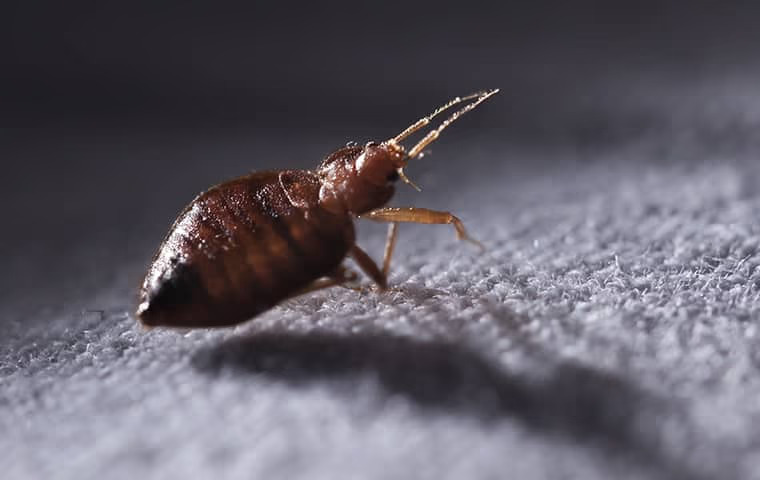Professional Kings Bug Control Services Cincinnati OH
Professional Kings Bug Control Services Cincinnati OH
Blog Article
Sorts Of Pest Control: Which Approach Is Right for Your Infestation?
When faced with a bug invasion, the option of an ideal technique for parasite control is important in effectively managing the situation. By exploring the various types of pest control methods available, individuals can make enlightened choices customized to their one-of-a-kind conditions, ensuring an extra lasting and efficient result in insect removal.
Chemical Pest Control
Chemical pest control entails the usage of artificial or naturally derived chemicals to take care of and get rid of pest populaces properly. This technique is frequently used in agriculture, forestry, and household setups to combat a vast array of insects, including weeds, rats, and insects. The usage of chemical pesticides can provide fast and targeted services to pest invasions, making it a popular selection for lots of individuals and organizations.
Among the essential benefits of chemical bug control is its ability to promptly eliminate insects, decreasing the risk of damage to plants, home, and human health. By using specific chemicals that target certain pests, this approach can efficiently regulate infestations while minimizing damage to valuable organisms and the setting when applied properly.
Nonetheless, the use of chemical insect control also elevates concerns regarding potential negative impacts on non-target varieties, water resources, and human wellness. It is important to comply with safety guidelines, apply chemicals properly, and consider alternate parasite control methods to decrease these threats and make sure sustainable bug monitoring practices.
Biological Bug Control
Organic pest control, likewise referred to as biocontrol, makes use of living organisms to lower and handle bug populaces normally. This approach uses the power of nature to regulate bugs without the demand for artificial chemicals. Biocontrol can involve the introduction of natural enemies of the parasite types, such as parasites, predators, or pathogens, to subdue insect populaces. By making use of the parasite's all-natural predators or microorganisms, biological parasite control offers a lasting and ecologically friendly option to pest administration.

Mechanical Insect Control
Utilizing physical and hand-operated approaches to take care of insect populations, mechanical bug control provides a different method that does not count on using living microorganisms or synthetic chemicals. This approach involves using obstacles, catches, or various other tools to physically hinder or get rid of bugs. By obstructing bug access factors or establishing up traps to capture them, mechanical parasite control can effectively decrease infestations without introducing chemicals into the environment.
One common example of mechanical insect control is the use of mesh screens on doors and windows to avoid insects from entering structures. This straightforward yet reliable approach works as a physical barrier, keeping insects out while enabling for proper ventilation. Additionally, tools like mousetraps, fly swatters, and ultrasonic repellents fall under the mechanical insect control category.
While mechanical pest control methods can be labor-intensive and require normal surveillance and maintenance, they provide a sustainable and environmentally pleasant remedy for taking care of bug invasions. By combining various mechanical strategies, homeowner can develop a thorough insect control method that decreases dependence on chemical pesticides.
Physical Bug Control

Some usual physical pest control techniques include making use of obstacles such as displays or webs to stop bug entry, traps to catch and eliminate bugs, and hand-picking to physically eliminate bugs from plants or frameworks. Furthermore, strategies like warm treatments can be utilized to manage insects like bed insects by raising the temperature to levels that are dangerous to the pests.
Physical pest control is particularly useful in incorporated parasite monitoring (IPM) strategies, where several pest control methods are incorporated for efficient parasite administration while lessening using chemicals. By using physical insect control techniques, individuals can successfully attend to insect infestations with minimal ecological effect.
Integrated Insect Management
When executing physical pest carpenter ant control control approaches as component of insect management approaches, Integrated Bug Management (IPM) emerges as a comprehensive method that leverages various strategies to effectively regulate pest populations. IPM focuses on lasting prevention of pests via a mix of organic, cultural, physical, and chemical devices tailored to specific bug problems. By incorporating numerous control strategies, IPM intends to lessen the risks related to insects while also decreasing reliance on chemical options.
One key element of IPM is the emphasis on tracking and assessing pest populaces to figure out the most ideal control methods. This aggressive method enables early treatment and targeted approaches, causing more effective parasite management. Furthermore, IPM advertises eco-friendly methods by focusing on non-chemical control methods and just making use of pesticides as a last resource.
Verdict

By using the parasite's natural killers or microorganisms, organic insect control supplies a lasting and environmentally pleasant solution to pest monitoring. - Kings pest control cincinnati oh
Utilizing physical and hands-on techniques to take care of insect populaces, mechanical parasite control provides a different strategy that does not depend on the usage of living microorganisms or synthetic chemicals.An efficient strategy to managing insect populaces without depending on chemical or organic methods involves the use of physical parasite control techniques.When carrying out physical parasite control methods as component of insect administration methods, Integrated Pest Monitoring (IPM) arises as a detailed method that leverages numerous techniques to efficiently manage pest populaces. Chemical parasite control entails the use of pesticides, organic pest control utilizes natural predators, mechanical insect control websites includes physical barriers, physical insect control includes capturing or getting rid of parasites, and incorporated pest management combines multiple approaches for a holistic check out this site approach to pest control.
Report this page